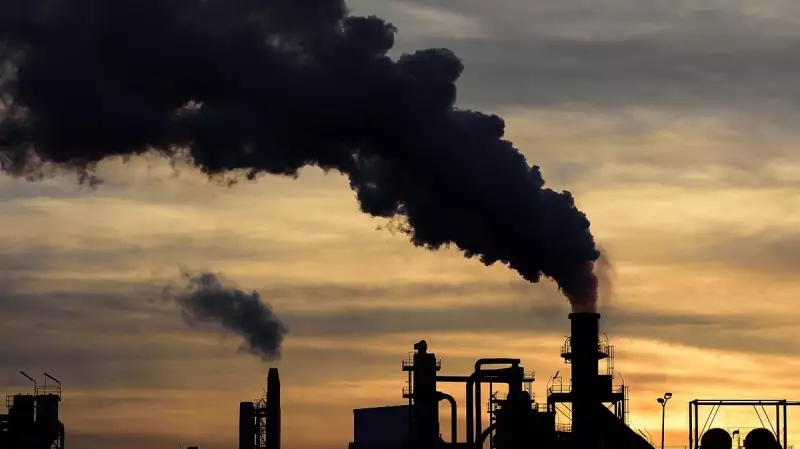
In a concerning development for global climate efforts, carbon emissions from fossil fuels reached an all-time high in 2023, according to a comprehensive international study. The research reveals that emissions continued their upward trajectory despite repeated warnings from scientists and growing climate emergencies worldwide.
Record-Breaking Emissions Figures
The Global Carbon Project study found that total carbon dioxide emissions from fossil fuels increased by 1.1% in 2023, reaching 36.8 billion metric tons. This represents the highest level ever recorded in human history, signaling a dangerous disconnect between climate commitments and actual emission trends.
When including emissions from land-use changes such as deforestation, the global total carbon dioxide emissions reached 40.9 billion metric tons for 2023. These staggering numbers come at a time when scientists emphasize the urgent need for rapid emission reductions to avoid catastrophic climate consequences.
Regional Variations and India's Position
The study highlights significant regional differences in emission patterns. Emissions declined in both the United States and European Union by 3.0% and 7.4% respectively, demonstrating that some major economies are making progress in decarbonization efforts.
However, the picture in developing economies tells a different story. India's emissions grew by 8.2% in 2023, reflecting the country's ongoing economic development and energy needs. China, the world's largest emitter, saw a 4.0% increase in emissions as its economy continued to recover from COVID-19 restrictions.
What makes these figures particularly alarming is that they occur against the backdrop of clean energy expansion. Renewable energy capacity has been growing at unprecedented rates, yet this growth hasn't been sufficient to offset increased fossil fuel consumption in many regions.
The Climate Deadline Looms Large
Scientists involved in the study issued stark warnings about the implications of these record emissions. The continued rise in greenhouse gases means the world is moving further away from Paris Agreement targets aimed at limiting global warming to 1.5°C above pre-industrial levels.
At the current emission rates, the research indicates that the world only has seven years remaining before exhausting the carbon budget that gives a 50% chance of staying below 1.5°C warming. This timeline creates unprecedented urgency for climate action across all sectors and nations.
The study authors emphasized that while the transition to clean energy is underway, the pace remains insufficient to meet climate goals. They called for accelerated deployment of renewable energy, enhanced energy efficiency measures, and rapid phase-out of fossil fuel infrastructure to reverse the current trend.
As world leaders prepare for upcoming climate negotiations, these findings serve as a sobering reminder that current policies and commitments fall short of what science demands. The record emissions underscore the critical gap between climate promises and tangible action in reducing global carbon output.





